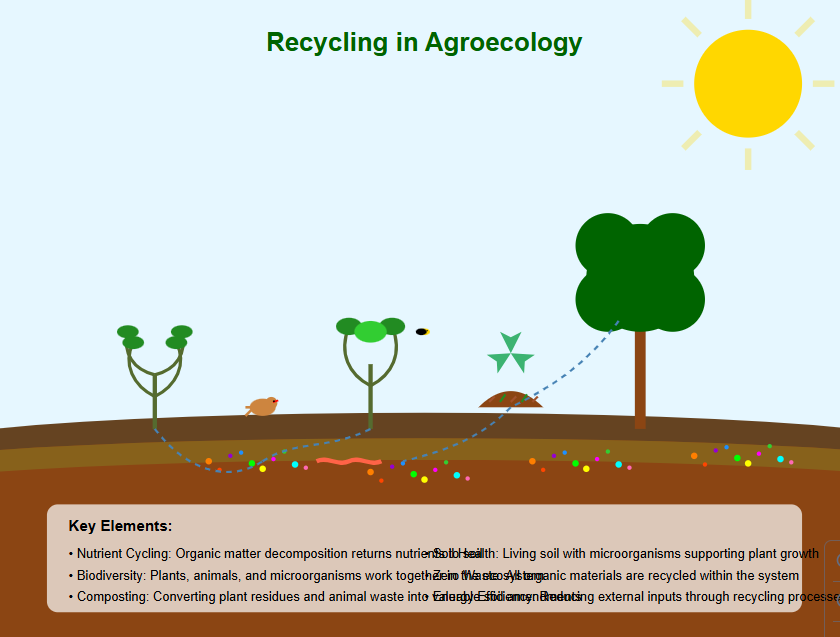
Recycling
Preferentially use local renewable resources and close as far as possible resource cycles of nutrients and biomass
Agroecology is an integrated approach that simultaneously applies ecological and social concepts and principles to the design and management of sustainable food and agricultural systems.
It seeks to optimize the interactions between plants, animals,humans, and the environment while taking into consideration the social aspects needed for a sustainable and fair food system.
Agroecology transforms existing food production systems into more sustainable and resilient food production systems, ensuring food security while preserving our environment.
Improving soil fertility and crop yields leading to increased food production
Reducing greenhouse gas emissions, conserving water and protecting biodiversity
Through increased farmer income and improved working conditions
Agroecological systems are better able to withstand climate change, pests and diseases

Recycling biomass and nutrients
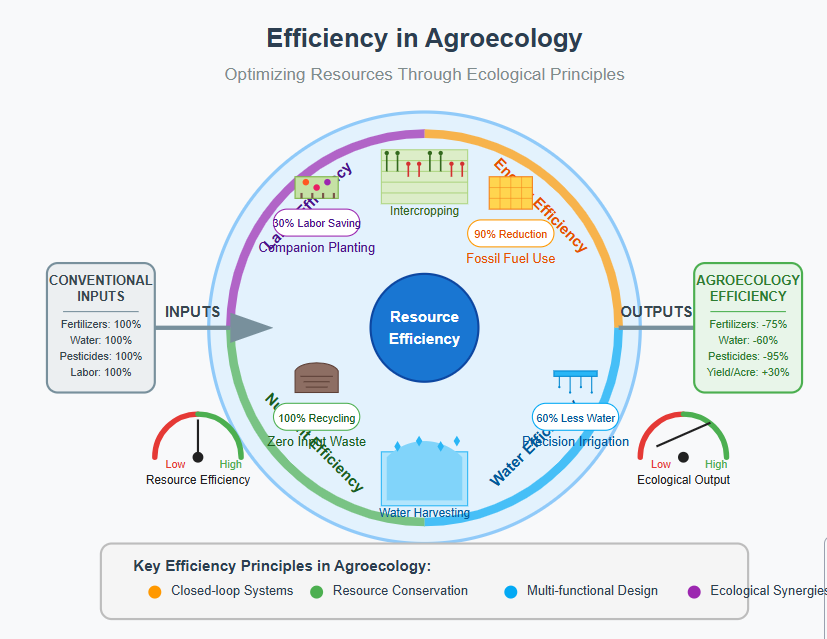
Efficient water management
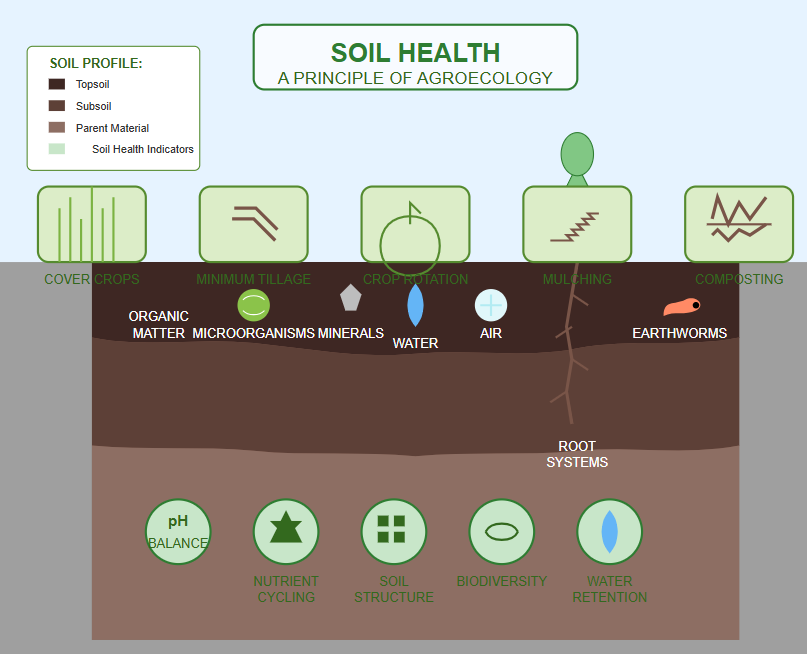
Building soil health
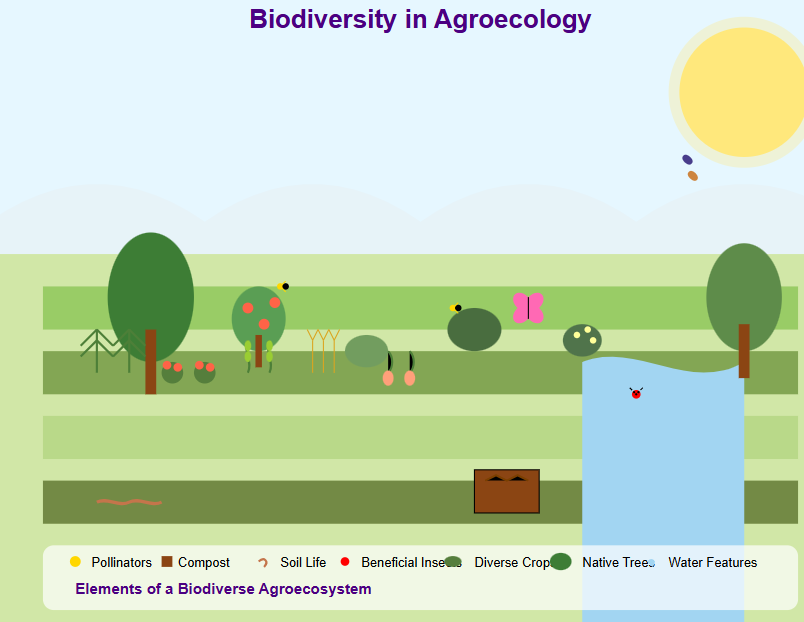
Enhancing biodiversity
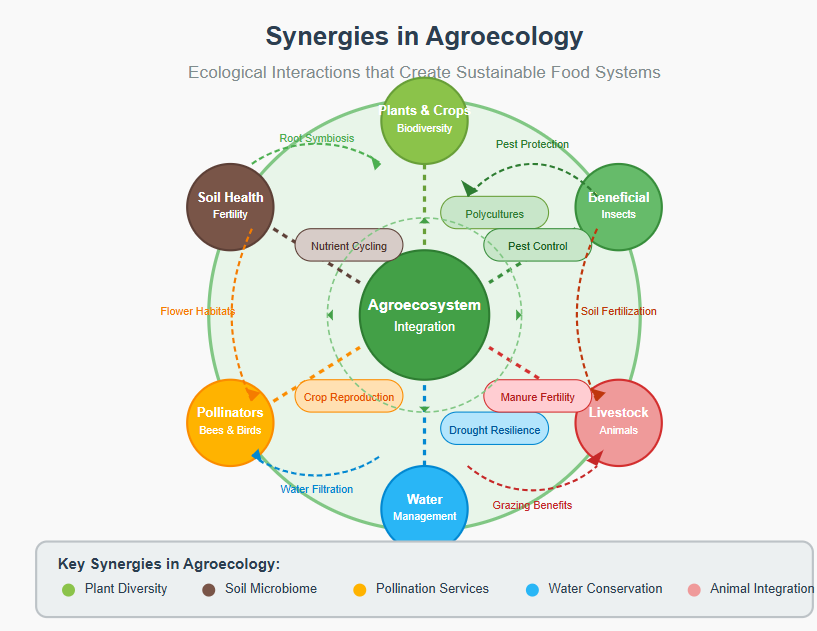
Creating beneficial synergies
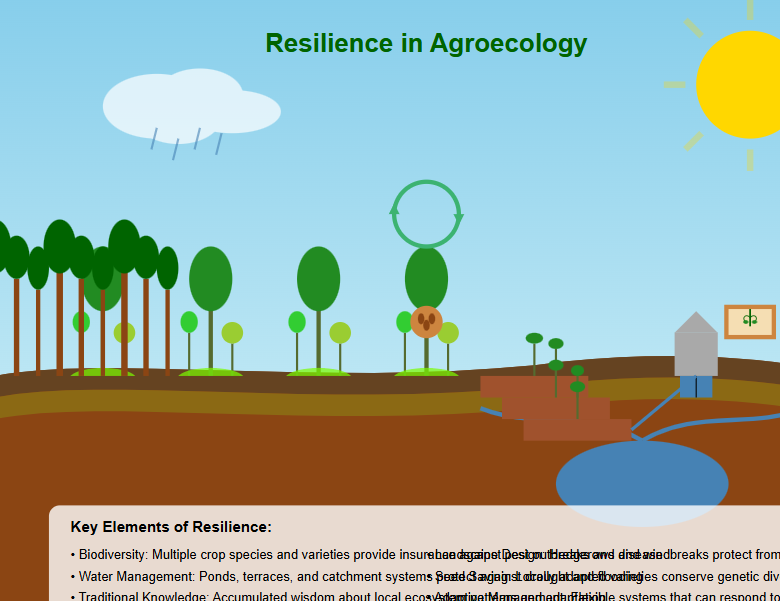
Building resilient systems
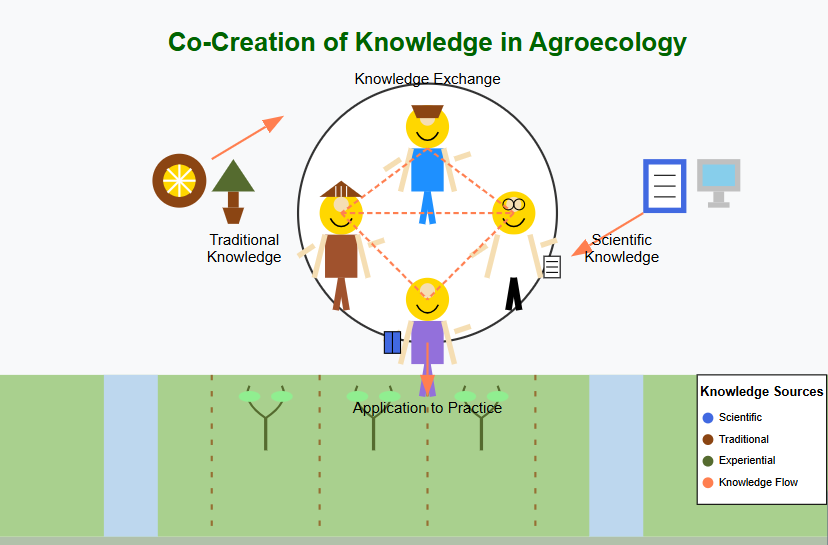
Knowledge co-creation
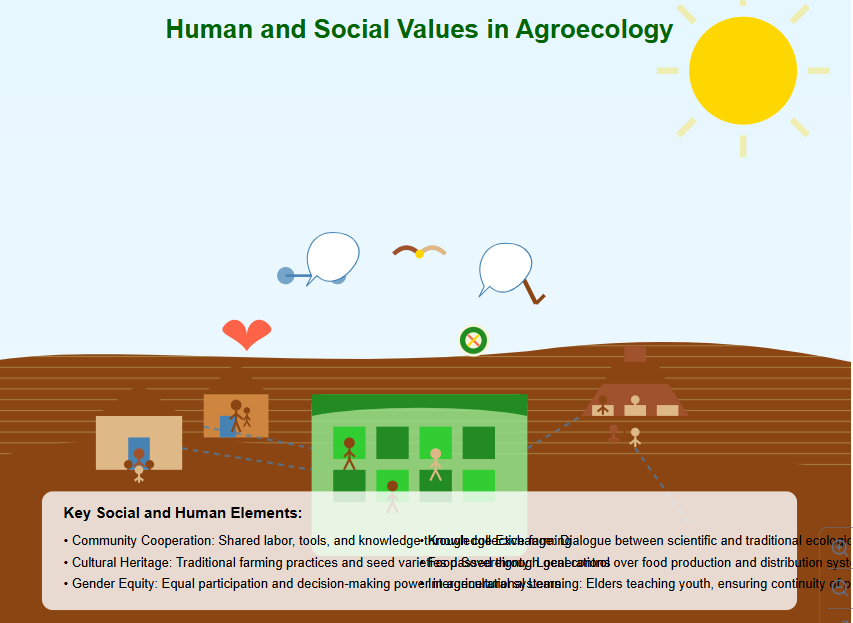
Human and social values,
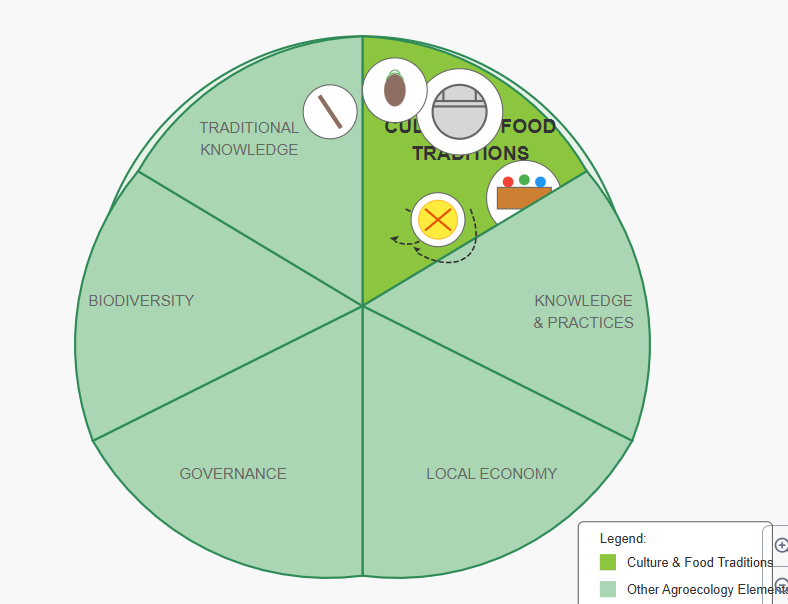
Culture and food traditions,
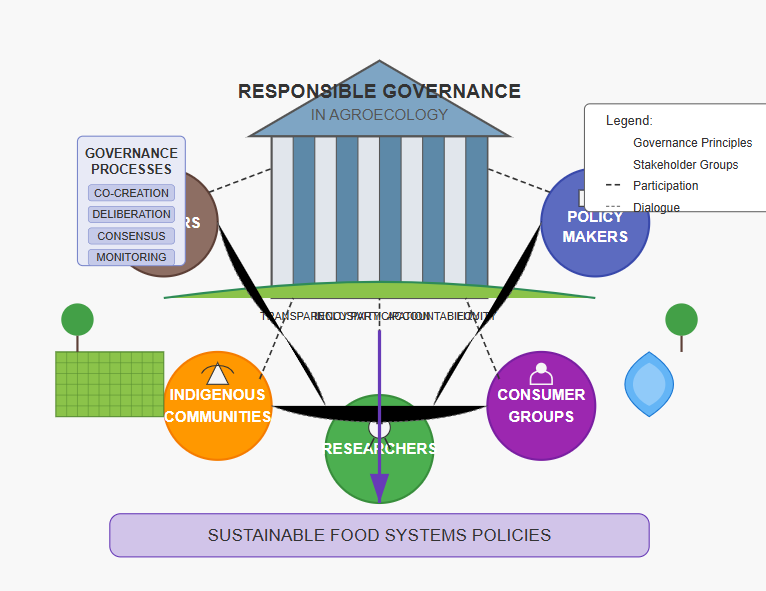
Responsible governance
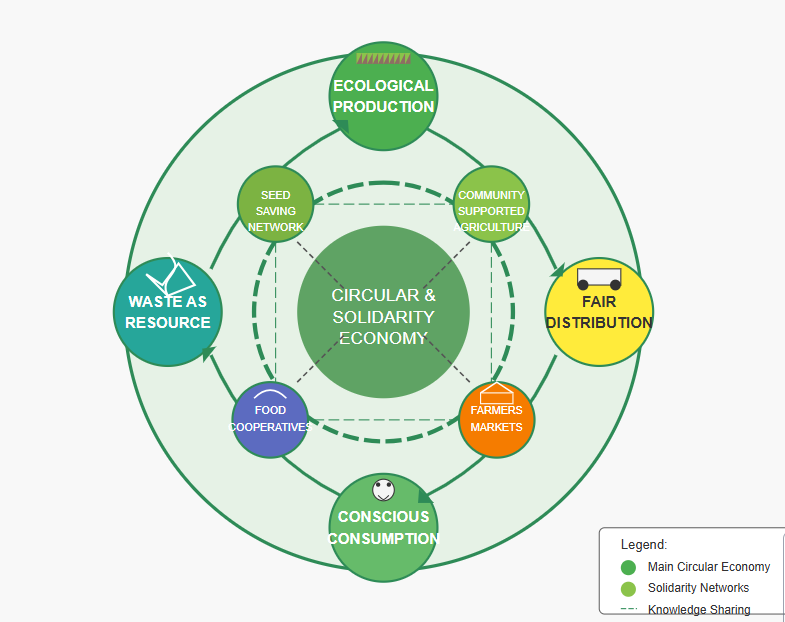
Circular and solidarity economy

Input reduction and efficiency,

Recycling biomass and nutrients

Efficient water management

Building soil health

Enhancing biodiversity
Discover the core principles that guide sustainable agricultural practices and ecosystem management

Preferentially use local renewable resources and close as far as possible resource cycles of nutrients and biomass
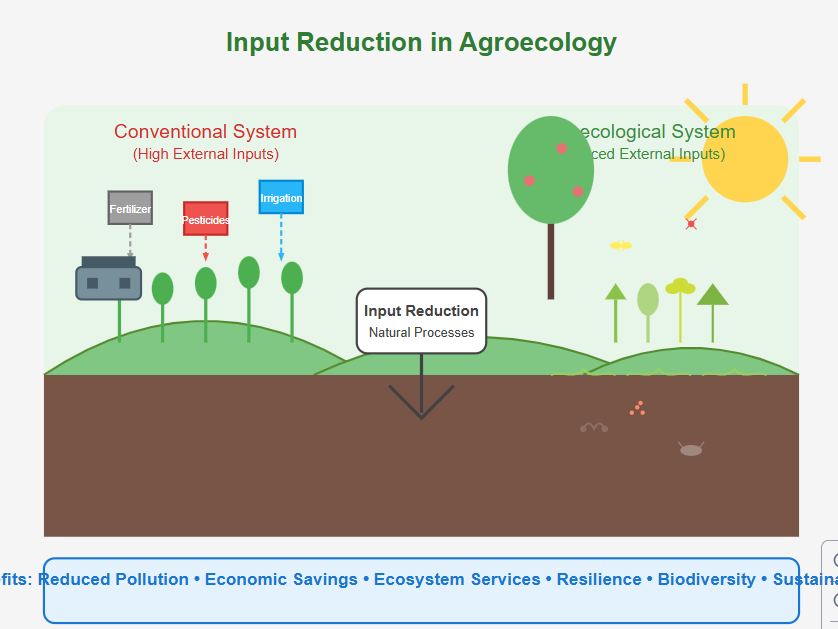
It refers to using agroecological practices to reduce or eliminate dependency on purchased inputs by carefully planning and managing rich and diverse ecosystems and synergies between different components of the agricultural system.

Secure and enhance soil health and functioning for improved plant growth, particularly by managing organic matter and enhancing soil biological activity
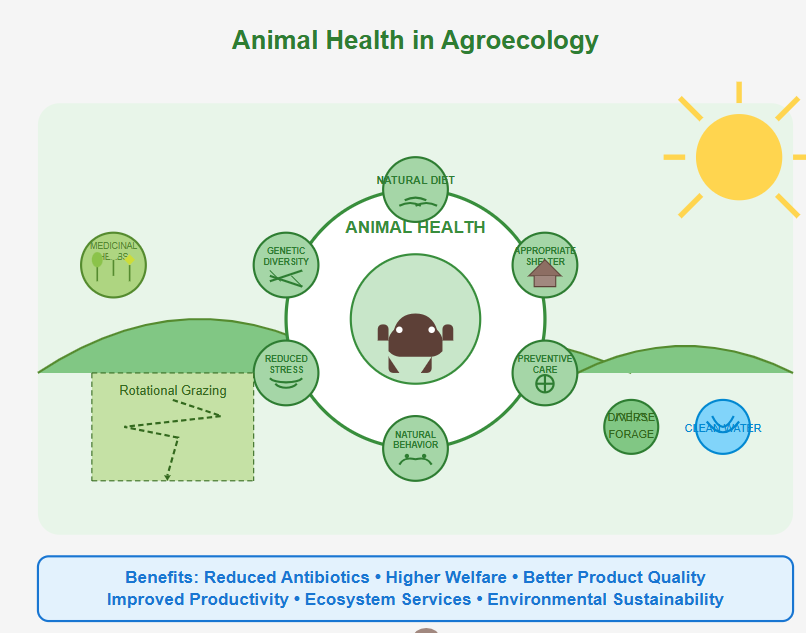
Animal health in agroecology embraces a holistic approach that focuses on prevention through proper nutrition, stress reduction, and natural behavior support. By integrating traditional knowledge with modern practices and allowing animals to express their natural instincts through access to diverse pastures and appropriate social structures, this system promotes robust immune systems while reducing dependence on synthetic medications.

Biodiversity refers to the variety of life on earth plants, animals, microbes, the genes they contain, the ecosystems they form, and the interactions between life forms and the environ- ment.

Enhance positive ecological interaction, synergy, integration and complementarity amongst the elements of agroecosystems (animals, crops, trees, soil and water).
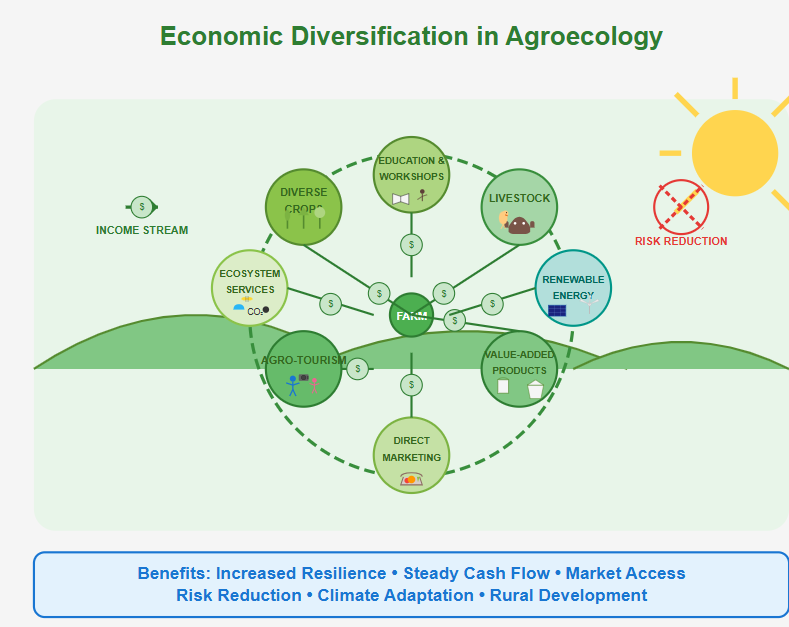
Diversify on-farm incomes by ensuring that small-scale farmers have greater financial independence and value addition opportunities while enabling them to respond to demand from consumers.

Enhance co-creation and horizontal sharing of knowledge including local and scientific innovation, especially through farmer-to-farmer exchange

Build food systems based on the culture, identity, tradition, social and gender equity of local communities that provide healthy, diversified, seasonally and culturally appropriate diets
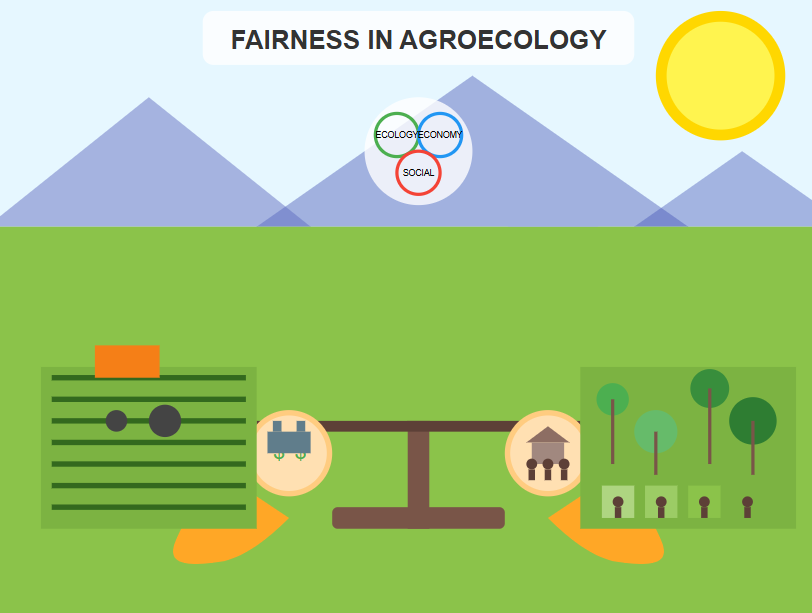
Support dignified and robust livelihoods for all actors engaged in food systems, especially small-scale food producers, based on fair trade, fair employment and fair treatment of intellectual property rights
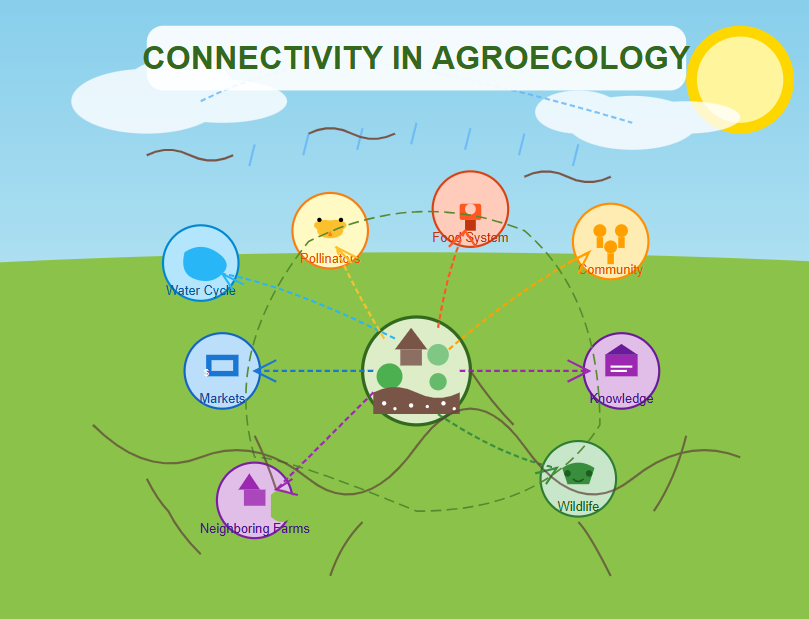
Ensure proximity and confidence between producers and consumers through promotion of fair and short distribution networks and by re-embedding food systems into local economies.

Strengthen institutional arrangements to improve, including the recognition and support of family farmers, smallholders and peasant food producers as sustainable managers of natural and genetic resources
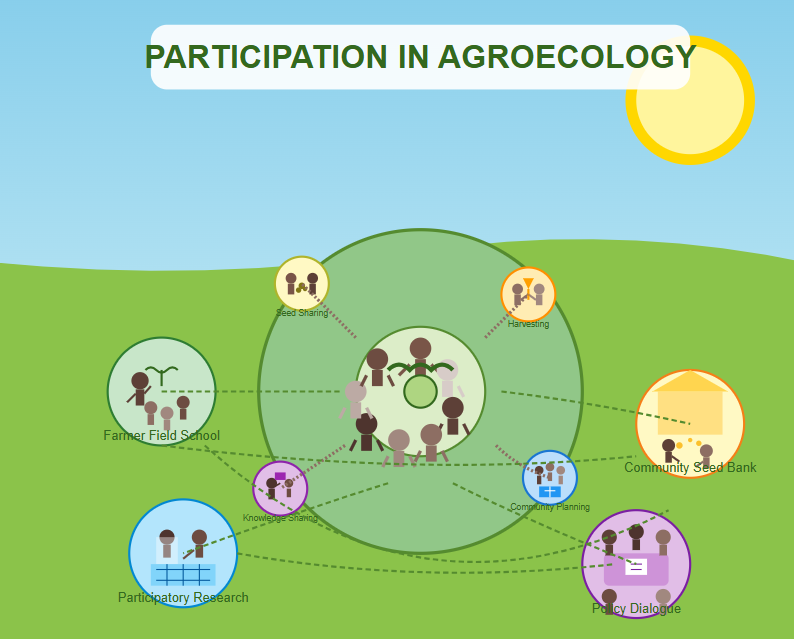
Encourage social organisation and greater participation in decision-making by food producers and consumers to support decentralised governance and local adaptive management of agricultural and food systems.